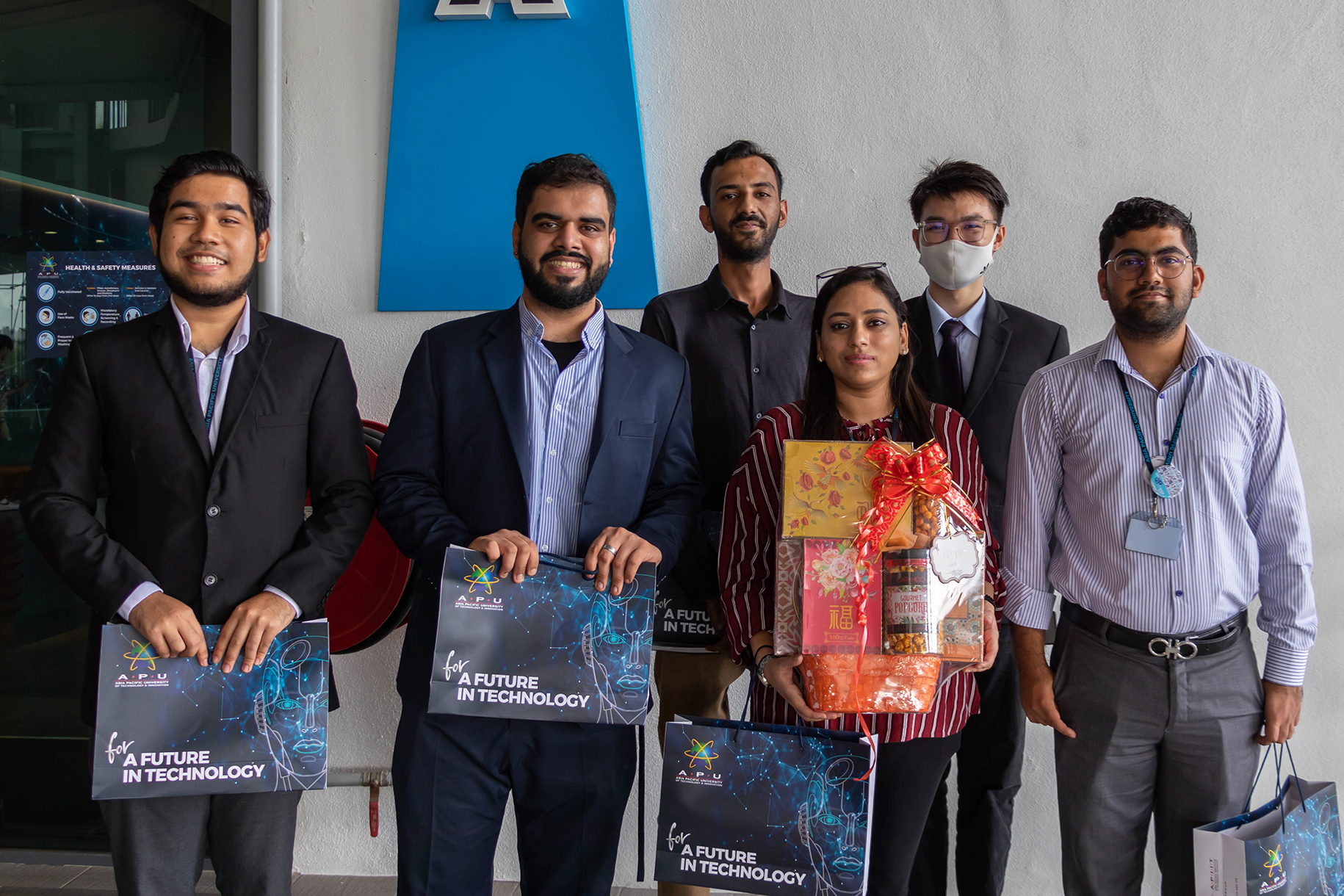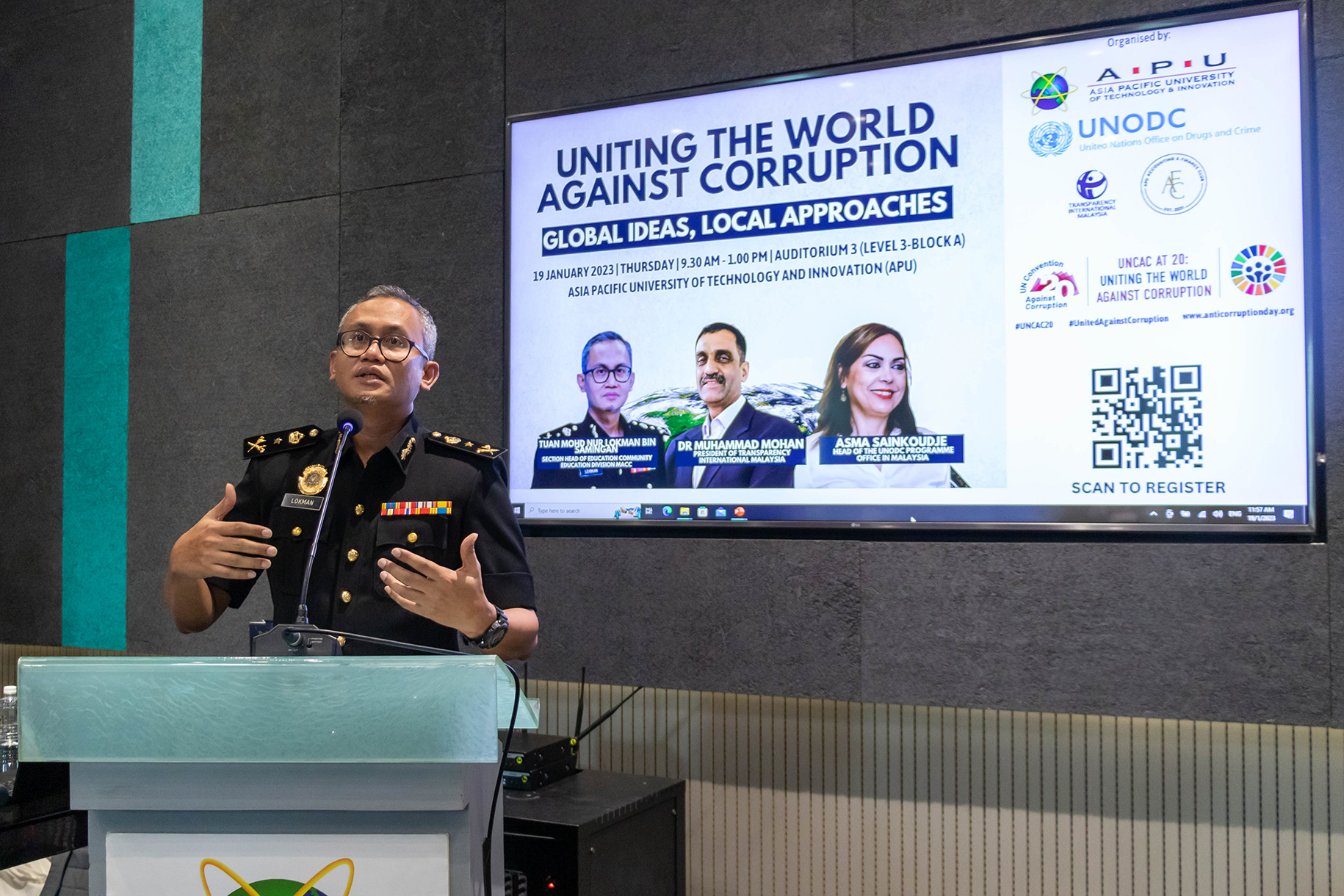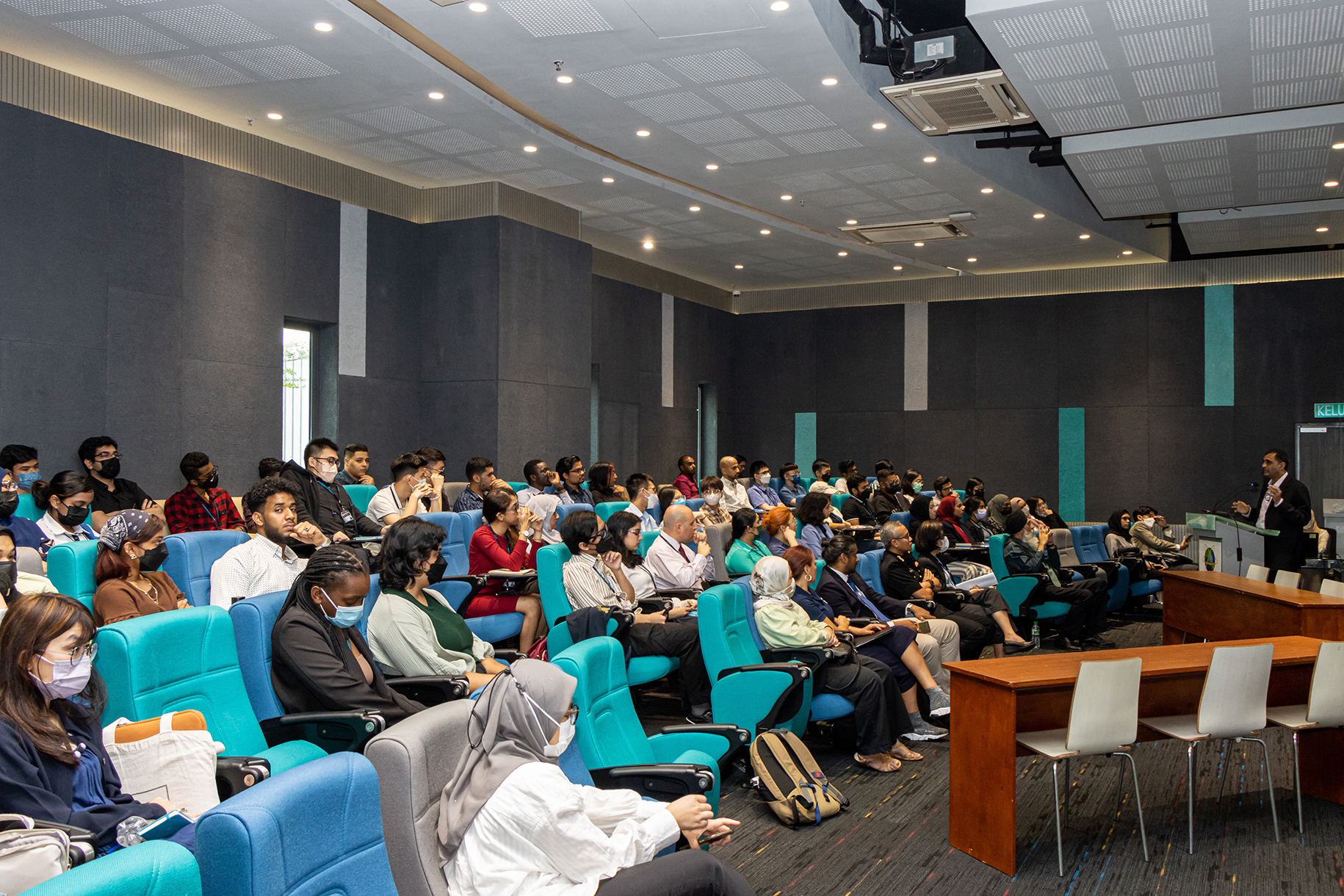You are here
UNODC And APU Empowering Integrity Amongst Students
Uniting the world against corruption with global ideas, local approaches

The Accounting and Finance Club (AFC) of Asia Pacific University of Technology and Innovation (APU) and the United Nations Office on Drugs and Crime (UNODC) jointly organised a seminar on 19 January 2023 at Auditorium 3 to raise awareness on the Uniting the World Against Corruption campaign.
Head of the UNODC Programme Office in Malaysia Asma Sainkoudje, President of Transparency International Malaysia (TI-M) Dr Muhammad Mohan and Malaysian Anti-Corruption Commission (MACC) Section Head of Education, Community Education Division Tuan Mohd Nur Lokman Samingan were among the experts invited to give a seminar to APU students.
TI-M also set up a booth at Atrium throughout the event to provide materials, goodies, and information about their organisation and ongoing initiatives relevant to youth.
In addition, a student debate session was also held on the topic: Neoliberalism contributes to corruption rather than preventing it (proposed by UNODC). A panel of judges comprised of guests from the three organisations adjudicated the debate.
In the hotly contested debate, team against the motion consisting of Anthony Yeo Woon Pert, Sabah Mehfooz, and Moiz Maqbool topped the team in favour of the motion comprising Muhammad Hafiz Iskandar, Muhammad Hassan Khan, and Talha Munawar.
Anthony who studies Information Technology with a specialism in Financial Technology (Fintech), Sabah Banking and Finance with a specialism in Investment and Risk Management, and Moiz Accounting and Finance, all enjoyed participating in the debate.

From left: Muhammad Hafiz Iskandar, Moiz Maqbool, Talha Munawar, Sabah Mehfooz, Anthony Yeo Woon Pert and Muhammad Hassan Khan are among the participants who took part in the debate session held in conjunction with the Uniting the World Against Corruption seminar.
They learned a lot about the international anti-corruption movement, how Malaysia is helping to fight corruption, and how technology like artificial intelligence (AI) and social media can help fight corruption.
“We learned that the goal of any debate, including this one, is to explore the issue from multiple perspectives,” said Anthony representing his team members.
Although certain attitudes and ideas such as an overemphasis on social justice, equality of results, and antagonism to all forms of profit-seeking can undermine the basis of a free society, the core value of neoliberalism does not imply that they adhere to a consumerist mindset.
Based on this point of view, they continued their argument that the main reason neoliberalism practises could help minimise corruption is due to the quick action of private sectors against bribery, and other factors such as encouraging accountability and transparency.
They provided examples of non-neoliberal practices that occurred in Sri Lanka during the previous administration, resulting in financial mismanagement and the syphoning of millions of public funds, even though no senior government official has been convicted of any crimes.

Malaysian Anti-Corruption Commission (MACC) Section Head of Education, Community Education Division Tuan Mohd Nur Lokman Samingan delivers his speech.
They also cited Singapore’s approach to policymaking as a ‘pre-determined product’ — the government presents policies as already decided and gives citizens little opportunity for input or feedback.
Meanwhile, the three of them advised other students to adapt to learn how to use the methodology taught by lecturers to search for answers from cite-able sources.
“This debate taught us that most challenges in life are subjective and open-ended,” he concluded.
Head School of Accounting and Finance (SoAF) Assoc. Prof. Dr. Chong Lee Lee, President of Accounting and Finance Club (AFC) Mohamed Azem Sulaimah and Advisor of Accounting and Finance Club (AFC) Kannan Asokan also attended the seminar.



